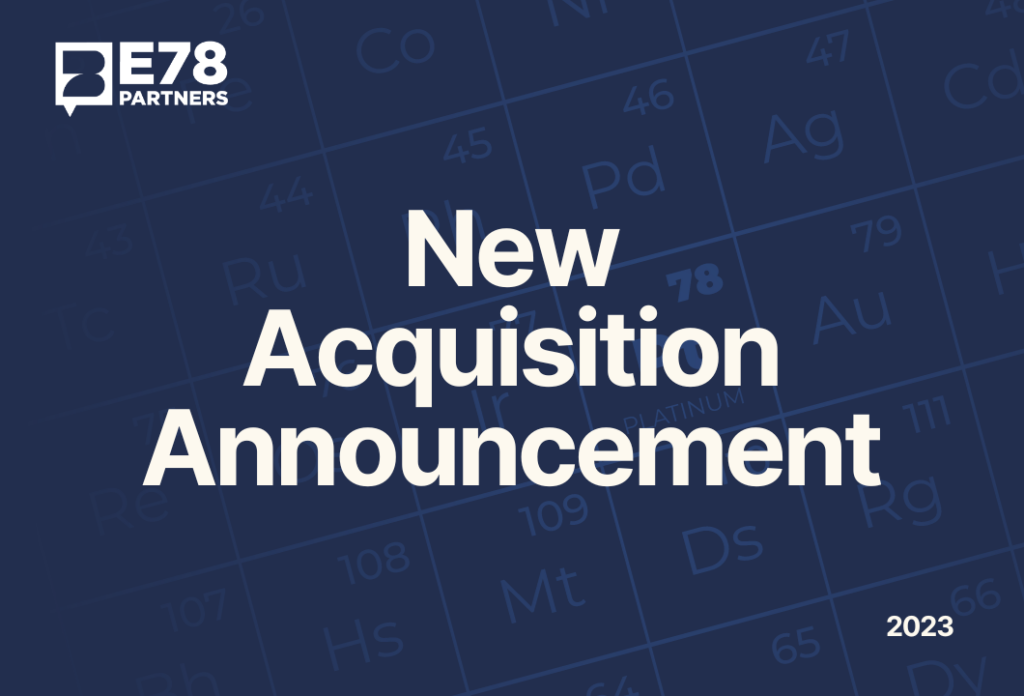When companies grow rapidly via organic and inorganic M&A, there can be a severe strain on the people, process, and technology infrastructure to support the growing enterprise.
But when will you know you have overextended your organization’s ability to manage this growth?
During these periods of concentrated growth, organizations must assess their company’s “platform infrastructure” to identify scalability gaps that could negatively impact critical business processes, customer relationships, and which could also overwhelm valuable employees.
This can be easily done via a 3-step assessment exercise.
Step 1: Define & model the acquisition archetypes for planned M&A transactions
There are various types of acquisitions that can be made, each with their unique purposes and overall integration strategies aimed at fueling growth through acquisition in a platform organization. These acquisitions may range from horizontal or vertical integrations to complementary additions or significant diversification, all with the goal of expanding the platform’s reach, capabilities, and market impact.
Each of these distinct acquisition archetypes will likely impact the platform’s revenues, product and service lines, customer base, served markets or geographies, and the number of physical locations over the course of several years. For instance, a horizontal acquisition can enable the organization to gain access to new customer segments, boosting revenues and expanding the market share. In contrast, a vertical acquisition may streamline the supply chain, leading to increased efficiency and reduced costs. Complementary acquisitions often enhance the platform’s product or service offerings, while diversifying acquisitions may expand the platform’s presence across different industries or geographies. Ultimately, the varying acquisition strategies are specifically designed to suit the unique growth objectives of each platform organization.
Step 2: Conduct a platform assessment with the following objectives
Identifying opportunities for a company to “scale up” is crucial in managing increased business requirements driven by market growth and acquisition activities. Companies must recognize the significance of strengthening their systems and processes to efficiently support both organic and inorganic growth opportunities. This involves defining the current capacity, or essentially determining how much business the organization can handle given its present structure, staffing, processes, and systems.
One primary focus for companies should be a thorough assessment of their current-state business processes, including service development, product development, software development, go-to-market, order-to-cash, procure-to-pay, hire-to-retire, service deployment, professional/ancillary services delivery, customer support/service, and other major business cycles as appropriate. Brief interviews with platform business process owners can provide a comprehensive understanding of the current capacity and possible areas for improvement.
An effective assessment should also gather vital information regarding current operations, organization, processes, and technology to facilitate the integration planning process for any ongoing or planned M&A activities. Typically, the assessment process is conducted through interviews with company personnel and can take anywhere between 2 to 4 weeks, depending on schedules and the size of the organization.
Step 3: Create a platform enhancement roadmap
The findings from the assessment serve as a foundation for developing a 6-18 month platform enhancement roadmap, addressing the output and recommendations resulting from the exercise. This strategic roadmap acts as a comprehensive guide to successfully manage the transformation necessary for the organization’s growth in response to the evolving market and M&A activities.
The roadmap should encompass all aspects of people, processes, and technology enhancements required to “scale up” and accommodate the anticipated impacts emanating from the planned M&A (as defined in Step 1 – the acquisition archetype exercise). By implementing a carefully planned and detailed roadmap, organizations can achieve a seamless transition and effectively respond to the challenges and opportunities associated with mergers and acquisitions, ultimately setting the stage for long-term success.
Some example findings might include
Capacity limitations in various functions may not be effectively addressed by merely adding headcount, and certain crucial projects deemed vital for scalability and sustainability may lack necessary resources for execution. In these situations, the implementation of organizational changes, enhanced automation, and function-specific strategic adjustments becomes essential to ensuring long-term sustainability and the seamless incorporation of the acquired entity.
Assumptions about the capacity of personnel in the acquiring company to create bandwidth within similar functions in the target company may often be overestimated and inaccurate. This overestimation results in an unrealistic understanding of the immediate capacity “lift” resulting from integration. In such cases, a certain degree of employee specialization and organizational restructure may be required to facilitate sustainable scalability.
An in-depth assessment of business processes is critical for understanding the current available capacity, the ease of scaling to support additional volume, and the simplicity of integrating in-flight or planned M&A transactions. These findings help organizations pinpoint areas in need of improvement and implement strategic changes that bolster capacity while maintaining efficiency and cohesiveness during the acquisition process.
‘Know before you grow’ with E78
Platform assessments enable companies to “know before you grow,” ensuring that planned M&A activities do not outpace infrastructure capacity and capabilities. By evaluating the current state of a company’s resources and processes, these assessments provide invaluable insight into organizational preparedness and the potential challenges that may arise during the integration process. This proactive approach can help prevent overburdened systems and loss of operational efficiency in the course of M&A-driven expansion.
At E78 Partners, we recognize the pivotal role that strategic M&A plays in driving business success. Our team of experts works closely with clients to conduct comprehensive platform assessments that identify existing limitations, potential synergies, and areas for optimization. Armed with this knowledge, we guide clients through each phase of the M&A process, ensuring seamless integration and the realization of their growth objectives.
With extensive experience and profound understanding of the unique challenges associated with M&A, E78 Partners is poised to support your company as you embark on transformative growth through well-planned acquisitions.
Contact us today to learn how we can help you and your company continue to thrive.




